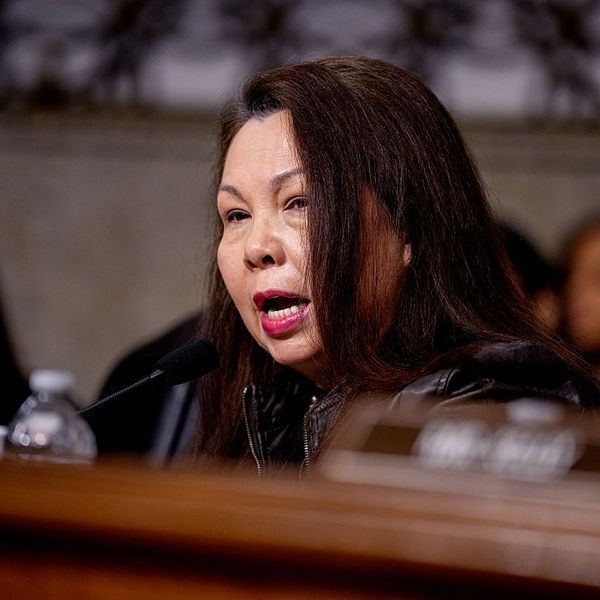An Afghan journalist records on videotape Mike Spann, well-scrubbed CIA agent-hero interrogating John Walker, wretched and grimy traitor; two young Americans on opposite sides in a prison in Afghanistan - one standing with a gun - the other on his knees bound and silent. One brainwashed, perhaps, the other not, perhaps. One is now alive the other is now dead. The camera, the agent and the traitor create an amazing confluence that a timid writer wouldn't dare try to suggest as real. And yet the cascading recent events from an author unknown make it possible to accept these two figures and this unlikely event as genuine history.
Robert Fisk, brilliant journalist who is the advocate and voice of reasoned compassion and pacifism, is reporting in Pakistan. He, along with very few journalists, is the conscience for the West and the guardian for the victims of a questionable military operation. His car breaks down and the very people for whom he advocates descend on him seeing him as simply a Westerner - a blue-eyed white imperialist aggressor who somehow is responsible for the unbearable losses that these refugees have suffered. It was a mad moment of racial profiling against someone who most likely thinks of himself as simply a member of the human race. And yet because of the divisions created by the violence he condemns, he can no longer navigate the world's rugged terrain with the luxury of that self-image.
For his own protection he now must defensively perceive himself as white, American/British or Western. "White man" in the refugee camps in Pakistan means cluster, carpet, daisy cutter bombs, death and loss of family. Middle Eastern in America means suicide bombs, death and loss of family. Black in Florida meant a Gore voter. The mail means anthrax. Perhaps a motif is emerging. Racial profiling is like a virus or a spore. It spreads and can conquer the entire organism - or maybe another interpretation is possible. It's up to the reader the author seems to be saying.
Were it not for a Muslim cleric intervening, these refugees would have unwittingly lost one of the strongest voices for their plight. Robert Fisk's response to this attack, although not without genuine human fear and anger, has been distilled to understanding when he learned that his attackers were in fact refugees who lost so much. His own awareness of the facts and his strength of commitment and compassion disqualified him from indulging in the immediate and simple reaction of "kill them all." His response is now emblematic and earned - he can with a different sort of authority say that understanding and steady justice is the only answer to the insanity of violence. The whole event seems overwritten - the number of Afghan refugees - one hundred - seems too arbitrary and round - the fact his car breaks down is stretching it - the arrival of the Muslim cleric seems like deus ex machina, and his response just too noble and good. He is human after all. And yet this author goes for it and stands by the creation of this Fisk character.
Going back to earlier chapters, candidate Bush was jumped by a reporter early on in his campaign. The reporter, wanting perhaps to challenge and test the contender for the throne, asked him who the leaders of various countries were. It was not a shining moment and the candidate's face was a contortion of violently conflicting impulses. But in light of present reality the question this renegade reporter asked him proves itself to be a wicked literary device. The reporter asked who the president of Pakistan was. At the time he might as well have asked him to name the moons of Jupiter as the candidate looked around wondering if this guy, much less the question, was for real - or if Pakistan even had a president. Now he knows the name of the president of Pakistan better than he knows the name Rove, Hughes or Millie. But it was a cunning bit of foreshadowing and the unknown author gets away with it.
Florida, the state run by the candidate's brother, is all too familiar and obvious a chapter now, but at the time such a plot was unthinkable. What were the odds that the election would come down to that state? What did it all mean? We thought then that perhaps the author had hit us with his best shot and he was not going to take anymore chances at straining our credulity. We should have known that if this was how the narrative started there was only one way for the author to go.
On September eleventh, on the plane that penetrated the Pentagon was a woman who wrote a book called "Hell To Pay" which by all accounts was an attack on our then First Lady. The author of that book, as it happens, was married to the man who argued against the election 2000 recount before a Supreme Court, who many believe, like John Walker, were traitors. In fact this part of the narrative inspired another book entitled, "None Dare Call It Treason." Not without dangerous irony does this author create events.
Also on September eleventh a priest, giving last rites to a firefighter who was killed by a body falling from the World Trade Center, removes his helmet to say a prayer and he is hit by a piece of falling debris and is killed. The density and power of that moment would take years to unravel.
This evolving narrative has the possibility of delivering chapters that will be bolder, more daring, more surprising and unless we actively and creatively interpret these blinding events for ourselves, they will also be simply, starkly and unbearably senseless and inevitable.


